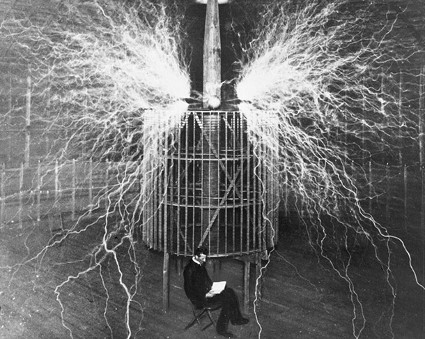What is technology?

Merriam-Webster says technology is:
“Application of knowledge to the practical aims of human life or to changing and manipulating the human environment. Technology includes the use of materials, tools, techniques, and sources of power to make life easier or more pleasant and work more productive. Whereas science is concerned with how and why things happen, technology focuses on making things happen.”
That’s a tidy definition, but there is nothing in it that could not also be construed to apply to the world of mining, for instance.
The word technology is a combination of two Greek words, techne and logos. Techne means art, craft, or skill. Logos means “to speak of”. Some have since taken the word logos to imply the practical application of techne, but others say that is stretching its etymological roots.
*****History of technology#####
The history of technology is the history of invention of tools and techniques and is similar to the other sides of history. The term came from the Greek word techne which means art and craft. It was first used to describe applied arts but now it is used to describe the advancement and changes around us. It starts with the beginning of life on earth, and goes until the founding of early modern technologies, such as computer and nuclear power. The era of technology started when wheel was invented which is one of the most important technology and after it, more and more things were invented.
Gradually different things started to be invented but the main era of technology and invention came in the 18 century when industrial revolution started and machines got invented and various types of development and production started. The Industrial Revolution began in Great Britain, and many of the technological innovations were of British origin. By the mid-18th century Britain was the world's leading commercial nation, controlling a global trading empire with colonies in North America and Africa, and with some political influence on the Indian subcontinent, through the activities of the East India Company. The development of trade and the rise of business were major causes of the Industrial Revolution.
New knowledge has enabled people to create new things, and conversely, many scientific endeavors are made possible by technologies which assist humans in traveling to places they could not previously reach, and by scientific instruments by which we study nature in more detail than our natural senses allow.
If we look back to the mid 20 century, there was no access of internet and it was difficult for people to communicate with each other and had problems in their businesses but with the invention of internet, people could have face to face conversation via Skype, facebook, live streaming etc. and now people could have online banking which have ended many problems for businessman’s.
As more existing technologies are stacked onto each other and developed into something greater, consumers and businesses alike can expect to see more opportunity with future technology. Technology will be faster, have the ability to accomplish more and everything will become more streamlined to make getting work done, easier.
You’ll hear more and more about the “Internet of Things” now and in the future. The deeper we dive into technology, the more it seems we try to blend the physical and virtual worlds together. Smart speakers, smart homes and even smart cars are the tech wave to ride in the future, but it’s just the beginning. In other words, the future happening is now. Or at least, it’ll be here sooner than you may think.
Technology is constantly changing and it sometimes feels like way too much effort to keep up with a moving target. Just remember - keeping up with technology adds value to your business.
Staying up-to-date helps ensure you don’t miss opportunities, become irrelevant or fall behind your competitors. Remember Kodak? They taught us all an invaluable lesson: don’t be afraid to embrace change.
Technical history is connected to the history of science. Since technology uses resources, technical history is tightly connected to economic history. From those resources, technology produces other resources, including technological artifacts used in everyday life.


